It was a video that spread like wildfire on Israeli haredi corners of the Internet – ironically since it’s a video featuring haredi rabbis who don’t want their flock exposed to the Internet.
On November 30, Communications Minister Yoaz Hendel (New Hope) sat in his office, across from senior rabbis from the hassidic, Lithuanian and Sephardi haredi communities, such as the Vizhnitzer Rebbe, Mir Yeshiva head Rabbi Eliezer Yehuda Finkel (II), Shas Torah Sages Council member Rabbi Reuven Elbaz, Yeshivat Porat Yosef head Rabbi Moshe Tzedaka and others.
The first thing that may strike someone familiar with meetings between politicians and haredi rabbis is how different this scene looks from the usual scenario, in which the politicians make their way to the home courts of the rabbis. They sit at the rabbis’ tables, with floor-to-ceiling cases of holy books covering the walls of the room. They wear a black kippah and show deference.
Instead, Hendel was at the head of the table, and the rabbis were his guests at the Communications Ministry. In addition, Hendel is an observant Jew, who keeps Shabbat and kosher but chooses not to wear a kippah on weekdays, and in his meeting with the rabbis, he was bareheaded as usual.
And rather than ask the rabbis for their advice or their blessing, Hendel addressed them like equals.

Speaking to them, Hendel made reference to a story his audience surely knew well. In 1952, then-prime minister David Ben-Gurion met with Rabbi Avrohom Yeshaya Karelitz, known as the Chazon Ish, the leader of haredi Judaism in Israel at the time, to discuss matters of religion and state. The Chazon Ish cited a Talmudic discussion in which a camel without a load on its back must make way for a camel loaded with goods when on a narrow path, as a metaphor for Israeli society. That story, which mistakenly became known as “the empty wagon and the full wagon” to most Israelis, is meant to say that haredi society is the “full wagon” – full of values – to which the “empty wagon” of secular Israeli society must defer, such as by not requiring haredim to enlist in the IDF.
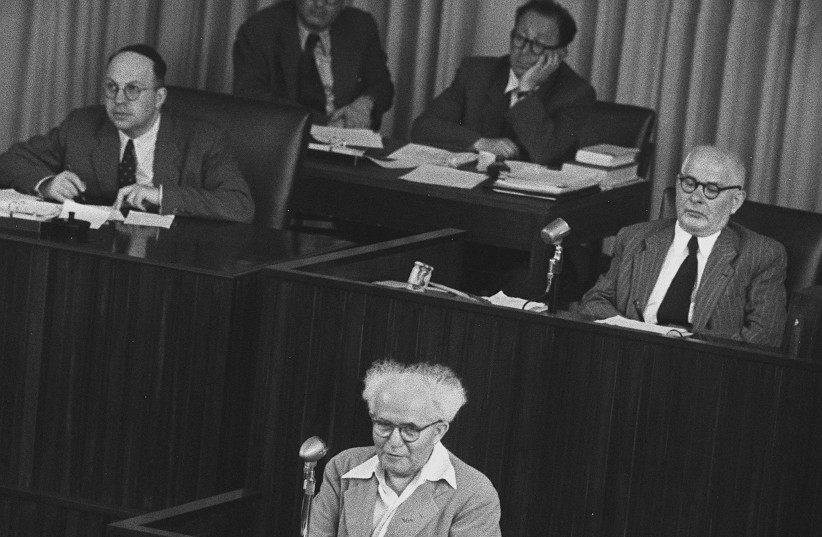
“I feel that I am a totally full wagon,” Hendel told the rabbis sitting before him. “I feel comfortable sitting with you and respect you very much, but I feel comfortable telling you that I care about my children just like you care about your children.
“The real argument that is here on the table is how we look at the State of Israel and whether the State of Israel can regulate what happens in its space,” he added.
Haredi media and politicians exploded over the meeting.
United Torah Judaism MK Moshe Gafni compared Hendel to a “paritz,” an Eastern European nobleman to whom the Jews of the shtetl had to show fealty.
“A minister in the government spoke with such arrogance and audacity to rabbis who have thousands and thousands of families standing behind them, who accept their authority,” Gafni said in the Knesset soon after. “Ben-Gurion at least respected the Hazon Ish enough to come to his house in Bnei Brak... [Hendel] sat like a paritz, without a kippah... He said terrible words... We’ve never seen anything like this in Israeli public life. Even people who think differently don’t speak like this. He should be ashamed!”
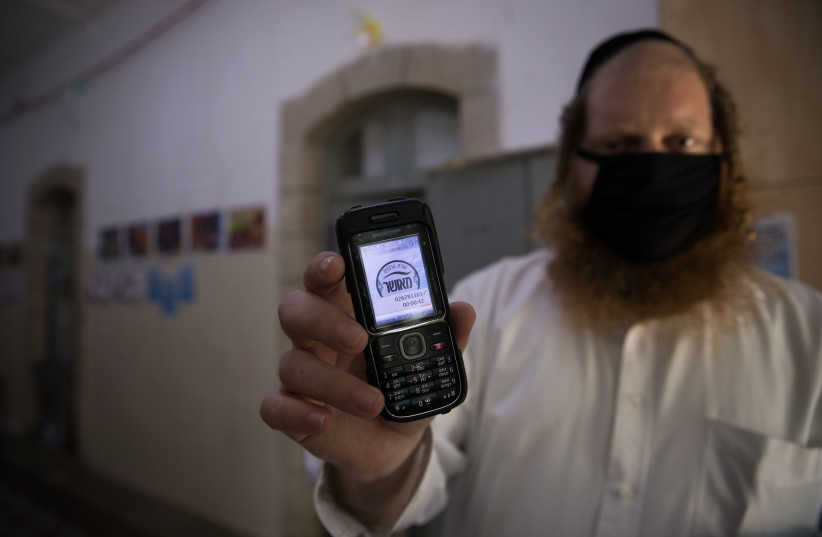
THE RABBIS asked for a meeting with Hendel to discuss “kosher phones,” a special phone service widely used by haredim in Israel. The cellphones in question are configured only for calls and text messages, no Internet, no apps. A committee determines that certain phone numbers are blocked and cannot be reached from those phones. They also have designated phone numbers so that kosher phone numbers can be easily identified.
Hendel, however, has pointed out that kosher phones are a sort of fiefdom within Israeli telecommunications. Unlike other phone numbers, kosher numbers can’t be moved from one company to another, severely limiting competition. The committees that block numbers lack transparency or recourse so that a business – the example Hendel gave is a kosher pizza place – has no way of knowing why a crucial communications tool has been cut off, and reversing the decision is near-impossible.
Though Hendel went into the meeting knowing that he and the rabbis disagree, he maintained in an interview for The Jerusalem Post Podcast this week that he was trying to show them respect.
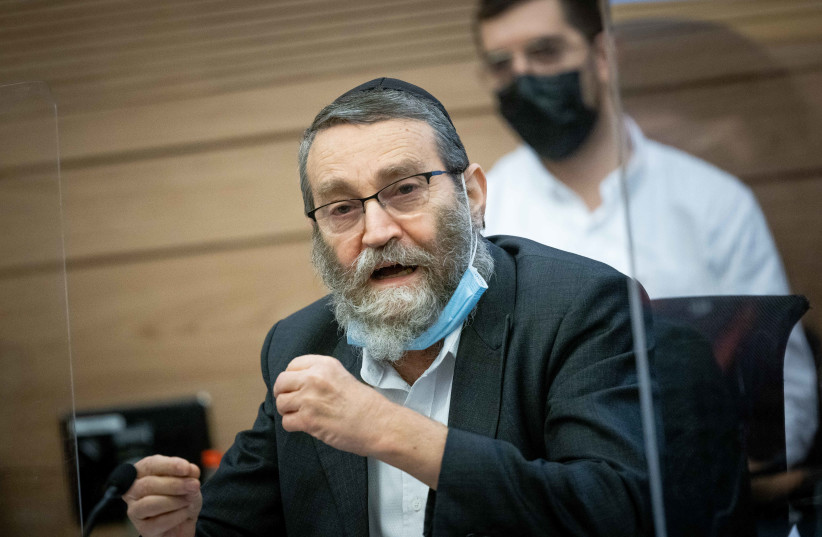
He didn’t wear a kippah, because he doesn’t usually wear one in the office, and he didn’t think it made sense to do so in a performative way.
Hendel also said he listened to the rabbis for an hour.
“They said they’re not willing to compromise, which means I have to be willing to compromise,” he recalled. “They talked about how the education of their kids is important for them – as if for us it’s not that important. And they talked about the ghetto and the Holocaust that if I make a decision regarding their mobile phones... it’s a Holocaust for them... The whole conversation was very philosophical.”
And when Hendel told the haredim that he too has a “full wagon,” he wanted them to know that “I also have a philosophical view; I also have ideas.
“I say Israel is the place of Jews from all over the world and I cannot accept the idea that there is a monopoly of Judaism that only belongs to the haredi community,” he said. “My wagon is full of the Talmud, Jewish heritage, Jewish sources, and in the same wagon I also have [poets] Bialik and Rachel and Leonard Cohen and other Jewish creators... When I served in the Israeli Navy SEALS, I was no less determined than a yeshiva [student] learning from morning until night.
“What I’m trying to say, in the subtext, is that you cannot think about yourselves as the only determined people in Israel. And yes, I am willing to have this discussion, but in an equal way,” Hendel stated.
The problem, according to Hendel, is bigger than just phones. The kosher phone conundrum is like the Hazon Ish’s camels or wagons.
“It’s about the character of Israel as a Jewish and democratic state,” Hendel asserted. “We have to agree that there are no autonomies in Israel.
“In the last two or three decades, we lost our sovereignty over different parts of Israel,” he explained. “If we look at the Ben-Gurion period, he talked about how to unite the country and how to bring tribes from different parts of the world into a melting pot. Today... we have four tribes, or five or six, and we live next to each other. From my point of view, we need to change direction. We need to go back to the core of Zionism.”
That core, Hendel said, is one Jewish and democratic state with equal rights and duties for all, and it must be emphasized to groups like Bedouin in the Negev, Israeli Arabs more broadly, and haredim.
“We will not be able to maintain the State of Israel, this miracle, if we will allow ourselves to become tribes or to allow autonomy everywhere, and to allow ourselves to ignore the fact that there is one law... that in Tel Aviv, you have law and order and in the Negev, in the Bedouin community, you have nothing, and in the ultra-Orthodox community, we have to change direction. And for many years, the governments of Israel ignored it,” Hendel said.
Hendel’s job, in that respect, is as a regulator who wants to make sure the same regulation applies to all.
“The kosher phones are a kind of monopoly, outside of law and order. There’s a vacuum.”
Hendel said he agrees with the haredi rabbis that it is important to filter Internet content for children, and he respects that aspect of the “kosher phone” norm.
But at the same time, the rabbis “used the word ghetto. They want to keep Israel out of their ghetto.
“You cannot hold the stick at both ends – on one end, to have the power and be part of the government for many years and have ministries, but on the other, to say ‘I don’t want the State of Israel to interfere with my life,’” Hendel said.
Plus, Hendel has pointed out that kosher phones are an illusion, and that 50-70% of haredim have the Internet anyway, with many carrying multiple cellphones so they can use the kosher phone in some circumstances – such as to register their children for prestigious schools – and a smartphone at other times. For example, Hendel gleefully recounted, the rabbis’ aides filmed his meeting with their smartphones. And Hendel confronted the rabbis with this reality.
Using a kosher phone number as a sort of social signifier is “not the role of a mobile phone,” Hendel said. “As a regulator... I have to let the Orthodox citizens in Israel have competition so they can pick whatever phones they want and no one can pick for half a million people what they can or cannot do.”
Hendel argued that the angry reaction to him, and to Religious Affairs Minister Matan Kahana (Yamina) who seeks to reform government kosher food supervision and conversion, from haredi media and politicians is because “this government is doing a lot to break up some of [the haredi] hold on religion and state issues in this country, and it’s something they’ve never experienced before.”
Ministers like himself and Kahana and Prime Minister Naftali Bennett, who are Orthodox, are willing “to take the hot potatoes” in a way that former prime minister Benjamin Netanyahu was not, Hendel said, suggesting that it may be because Netanyahu doesn’t keep kosher and therefore doesn’t see the matter as a priority.
As for Gafni calling Hendel the paritz, Hendel retorted: “We are not in exile... We are in the sovereign State of Israel... You can take some Jews out of the Diaspora, but you cannot take the Diaspora from the Jews.”
HENDEL’S VIEW on Israel needing to root out autonomous, lawless behavior in Israeli society is not only limited to haredim.
He lamented that there has been “an Arab autonomy and for many years, the former prime minister and other ministers chose not to make any decisions, and then we found ourselves in the last military campaign with an Arab population that rose up against the State of Israel.”
The remark was a reference to internecine violence in mixed Arab-Jewish towns like Acre and Lod during Operation Guardian of the Wall in May, in which Israeli Arabs burned down synagogues and Jewish-owned businesses and assaulted Jewish residents, and there were a smaller number of retaliatory attacks by Jews.
But Hendel also spoke out against illegal construction in Arab areas, along with pirated electricity, water and communications infrastructure.
“We have to try to organize the chaos,” he said. “I chose to tell those pirates that they have two options, to go to the Communications Ministry and start the process to get a license, and we will regulate you, or we will use legal tools to make sure you cannot work anymore.”
As a result, 29 out of 30 such communications “pirates” have applied for licenses, Hendel said.
“We need a very strong stick in the Negev and Galilee, but on the other side, to have the carrot. Unfortunately, in the State of Israel in the last 20 years, we chose not to pick neither the stick nor the carrot,” he stated.
THE COMMUNICATION Ministry’s slogan under Hendel’s leadership is “to connect Israelis,” and his flagship project to that end is building a fiber-optic network throughout Israel. In 2018, only 2% of Israeli households had access to fiber-optic cable, and now 50% of them do.
“Israel is connected to high-speed Internet and we increase the numbers day by day. I hope that by the end of 2022, we’ll have 70% [fiber-optic access],” Hendel said.
He has specifically focused on getting high-speed Internet to Israel’s periphery, in order to make working from home easier.
“This is about money and work conditions and about encourage people to move from Tel Aviv and the Center to our borders, to the Galilee and the Negev, instead of being concentrated in the center,” said Hendel.
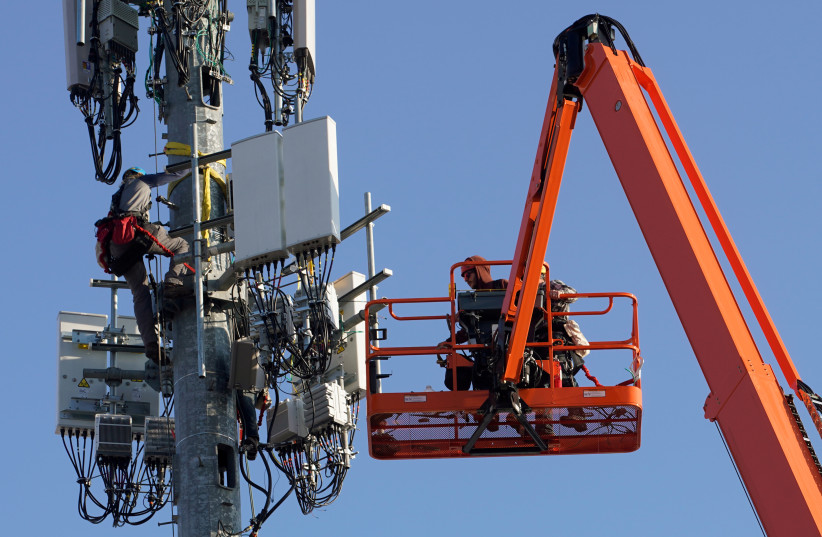
Fiber-optic access will also facilitate Israel’s transition to 5G Internet, an area at the forefront of competition between the US and China, in which Israel has been caught in the middle. Beginning with the Trump administration, and continuing with the Biden administration, Washington has expressed concern that Israel does not have a robust enough system to ensure untrustworthy foreign actors are not involved in Israel’s necessary infrastructure.
But Hendel has been quietly aligning Israel’s communication policy with Washington, when it comes to fifth-generation technology standard for cellular networks (5G) infrastructure, and also in the case of the Hong Kong-based Hutchison Telecommunication’s obtaining the controlling stake in Partner, Israel’s second-largest telecom company. The Communications Ministry never authorized the Chinese firm’s control, leading Hutchison to sell the shares.
At the same time, the word “quietly” is key. You won’t hear Hendel say a word against China.
Yet he reiterated that the US is Israel’s “best ally in the world,” and that Jerusalem and Washington “see eye-to-eye in these fields.”
In addition, Hendel said China and “the Cold War about 5G” was a topic of discussion in his meetings at the White House and State Department when he visited Washington earlier this year. Israel and the US have working groups for research and development related to 5G.
“We have our own interest to make sure we have a kind of Iron Dome in this field,” Hendel said. “It’s an Israeli interest to make sure no cyberattack will damage our ability to connect with each other and to protect our information, knowledge, and data.”
The development of 5G networks raises security concerns, “but they are also an opportunity... we all understand that... we need to invest a lot of money in creating a strong 5G market with competition.”
Another concern the US and Israel share is exploring social media regulation. Hendel said he is seeking “transparency and responsibility.”
Meta, Facebook’s parent company, “can block you tomorrow morning without any responsibility and you have nothing you can do,” Hendel said. “Facebook and other networks take no responsibility and do whatever they want... they pick different posts to raise or decrease [visibility].”
“You have to have responsibility for what you edit if you publish fake news or lie about me... If they publish a post calling on people not to get vaccinated and risk lives – if they choose to raise this post – I want them to take responsibility and for someone to be able to sue them.”
His ministry is looking into what kinds of regulation would be possible, and Hendel pointed to similar efforts in the US Congress and the EU.
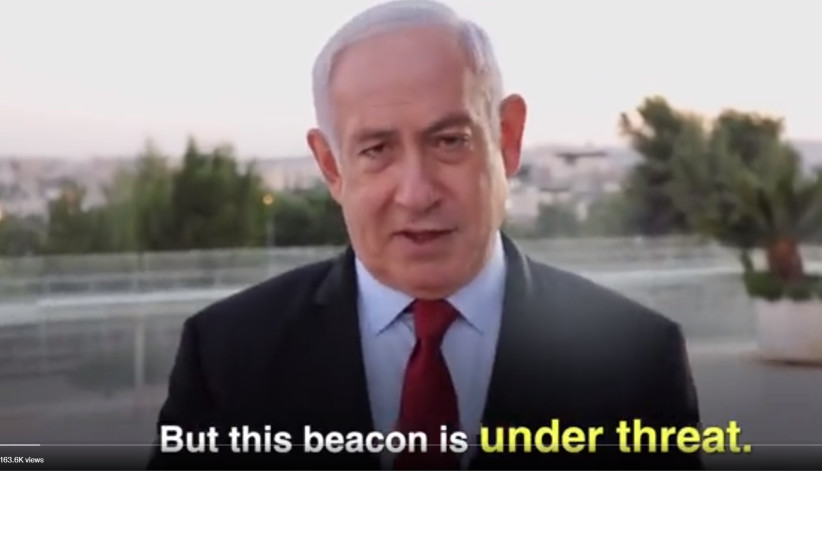
HENDEL IS a former spokesperson for Netanyahu who resigned in 2012, after reporting Netanyahu bureau chief Natan Eshel for sexual harassment of a worker in the Prime Minister’s Office. He has been a vocal critic of the former premier since entering electoral politics in 2019.
Netanyahu posted a video in English last week on Twitter, where he has 2 million followers, with the message that “Israeli democracy is under threat,” and referring to bills that that institute term limits, ban candidates on trial for alleged crimes from being prime minister, expand police ability to search a home without a warrant and court orders to remove incitement from social media, which have not yet passed into law.
The bills, Netanyahu argued, will lead to a situation in which he cannot run for the country’s leadership and “deprive millions of Israelis of their choice for leadership.”
“This is not even a slippery slope; this is a chasm,” he said. “It’s the Grand Canyon, where the fundamental rights of democracy are just buried – down the stream they flow and disappear.”
Netanyahu said he is speaking out “because I think it will affect all other democracies... Speak up before it’s too late; what will start here will very quickly be passed on to you.”
Senior coalition officials wrote a letter to Knesset Speaker Mickey Levy this week, emphasizing the fact that Netanyahu’s message was in English and calling for a motion to the agenda to discuss how Netanyahu is using social media “for disseminating slander against Israel around the world and [giving] additional material to those trying to harm us.”
Hendel called the video “quite shameful.”
“I think he called Israel North Korea in English,” the minister said. “I remember times when Netanyahu and I would criticize people from the extreme Left, anarchists, that used different claims against Israel like Breaking the Silence and other organizations that belong to the BDS movement.”
Breaking the Silence publishes testimony from IDF veterans claiming war crimes, and does not consider itself part of the movement to boycott Israel.
“Instead of dealing with problems and claims inside Israel, and doing it in Hebrew, Netanyahu chose to publish them in English and show the world what he thinks [about] in Israel,” Hendel stated.
“I must remind you,” he added, “that Netanyahu was the prime minister half a year ago – so I thought it was shameful.”
Hendel also called Netanyahu’s claims “fake news,” and pointed out that Netanyahu’s own coalition proposed a bill similar to the new one permitting police searches without a warrant, as a step to combat high crime in Israeli-Arab communities.
The minister argued that Netanyahu’s video is another example of how the opposition leader believes that “if he’s not prime minister, no one can sit in his holy chair... this is not the State of Israel and the Zionist dream does not exist anymore.
“He shows this when he forces his Knesset members to vote against Zionist bills,” such as the “family reunions bill” that would continue the practice of blocking Palestinians from immigrating to Israel after marrying Israelis.
Hendel also took umbrage with Likud MKs putting the North Korean flag next to their names on Twitter to protest what they feel are anti-democratic policies.

“I thought, when I saw this, that it is a redline that he crossed, a step that is too far,” he said.
Hendel compared Netanyahu to Shabtai Zvi, a 17th-century false messiah with a massive Jewish following who eventually converted to Islam, bringing thousands of Jews with him.
“What I see is a kind of Shabtai Zvi, where people think whatever he says is the truth. It’s a kind of cult... If he puts the flag of North Korea and tells the world this is North Korea, people believe it because Netanyahu says it, and I think that’s dangerous for Israel,” he said.
This government’s job is to try to convince Israelis not to support Netanyahu and the parties who back him, Hendel said.
“The fact that so many people support him needs to be changed, and will be changed by convincing people and proving that we’re fulfilling our vision and mission.”
The complete interview with Hendel is available on this week’s episode of The Jerusalem Post Podcast, available on JPost.com and all major podcast platforms.
